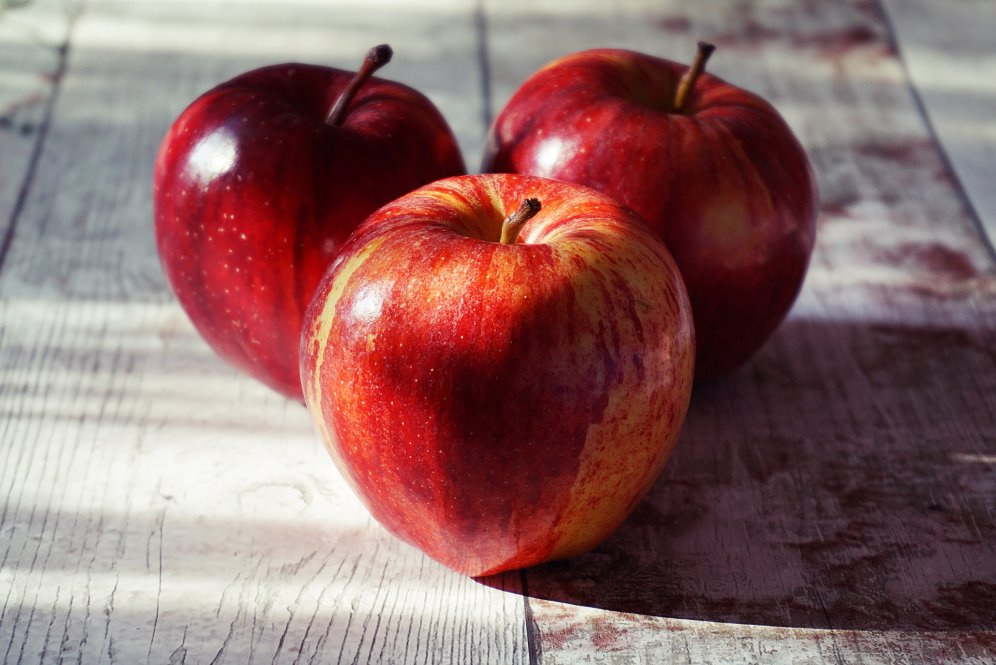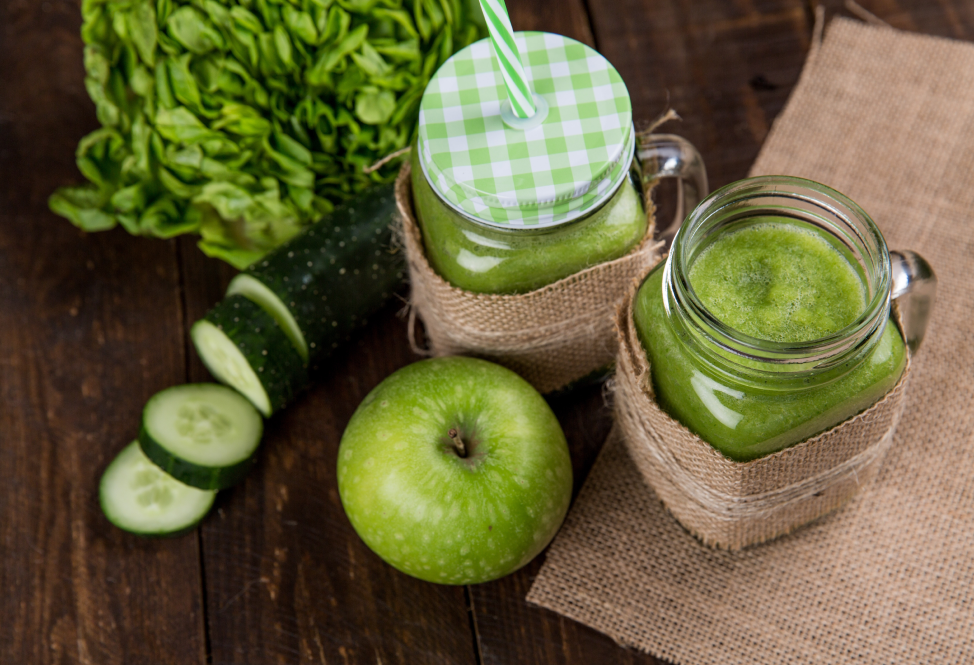It's no secret that apples are an incredibly healthy snack; they're packed with vitamins, minerals and antioxidants. But did you know apples may also help keep your digestive system running smoothly?
Over the years, many health professionals have claimed that eating apples can lead to better digestion, and allowing you to poop better.
In this blog post we'll take a closer look at the science behind this claim and see if it really does hold up. So read on to find out whether apples could be just what you need to calm your bowels!
Table of Contents
An Overview Of Constipation

Constipation affects countless individuals worldwide. It occurs when the frequency or ease of bowel movements decreases, resulting in difficulty passing stools.
The causes of chronic constipation can vary, ranging from lifestyle factors to underlying medical conditions. Though, as far as research and medical speculation goes, insufficient fiber intake, dehydration, lack of physical activity, and certain medications are common culprits.
When faced with constipation, it's essential to understand its impact on your overall well-being. Not only can it cause discomfort and bloating, but it may also lead to more severe complications, such as hemorrhoids or anal fissures.
Therefore, addressing the issue promptly is crucial for maintaining a healthy digestive system.
Apples and Digestion Process

To begin, let's explore the composition of apples. These fruits are rich in dietary fiber, particularly soluble fiber called pectin. Fiber plays a vital role in digestion as it adds bulk to the stool and helps move it through the intestines.
As you eat an apple, it travels down the esophagus and into the stomach, gastric acids and enzymes continue to break it down further.
Once in the small intestine, the soluble fiber in apples, such as pectin, attracts water and forms a gel-like substance. This process slows down digestion, promoting a gradual release of nutrients and aiding in maintaining regular bowel movements.
Does Eating Apples Make You Poop More?
Apples are often praised for their fiber content, with a medium-sized apple containing about 4 grams of dietary fiber. Fiber plays a crucial role in maintaining healthy digestion by adding bulk to the stool and promoting regular bowel movements, as mentioned earlier.
The soluble fiber, pectin, found in apples has been particularly associated with its potential to treat constipation.
Studies have shown that consuming foods rich in dietary fiber, including apples, can contribute to more frequent bowel movements.
The fiber in apples absorbs water and forms a gel-like substance in the digestive tract, which can soften the stool and ease its passage through the intestines. This can help alleviate constipation and promote regularity.
Does Eating Apples Eliminate Gas and Bloating?
While gas and bloating can be caused by various factors such as food intolerances, lack of moisture in the intestines, or excessive air intake while eating, apples can play a role in restarting and maintaining healthy digestion.
However, it's important to consume apples in moderation and consider individual sensitivities.
When consuming apples to address gas and bloating, it's recommended to choose a small to medium-sized apple. Eating the apple with its skin is beneficial because the skin contains insoluble fiber, which aids in digestion.
The fiber adds bulk to the stool and helps move it through the digestive tract, potentially reducing the occurrence of gas and bloating.
What Happens If I Eat Too Many Apples?
Apples are undoubtedly a nutritious and delicious fruit, but like any food, consuming them in excess can have potential consequences.
One primary concern associated with overeating apples is the high sugar content they contain, primarily in the form of fructose. While fructose occurs naturally in fruits and is generally considered healthier than refined sugars, consuming too much fructose can lead to issues such as gastrointestinal discomfort, bloating, and diarrhea.
Additionally, apples contain a type of carbohydrate called sorbitol. Sorbitol is a sugar alcohol that can have a laxative effect when consumed in large amounts. Overconsumption of sorbitol can lead to digestive discomfort, including diarrhea and abdominal cramps.
Apple vs Apple Juice - Which Is Better For Digestion?

Whole apples, including their skin, are rich in dietary fiber, particularly insoluble fiber. This fiber adds bulk to the stool, promotes regular bowel movements, and supports overall digestive health. By eating a whole apple, you benefit from the synergistic combination of fiber, vitamins, minerals, and antioxidants that contribute to optimal digestion.
On the other hand, apple juice, especially commercially processed versions, often undergoes a filtration process that removes or reduces the fiber content. Without the natural fiber, apple juice may not provide the same digestive benefits as a whole apple. However, homemade or minimally processed apple juice may retain some fiber, offering a modest advantage over commercial varieties.
In short, Apple itself is much better for digestion over commercial apple juice. Although, homemade apple juice (with skin) can more or less offer the same benefits as a whole apple.
Alternatives To Make You Poop Better

Maintaining regular bowel movements is essential for a healthy digestive system. If you're looking for alternatives to help improve your bowel regularity, there are a few options worth considering.
In this section, we'll explore two potential alternatives: probiotic supplements and certain juices known for their potential to promote better digestion and relieve constipation.
Probiotic Supplements
Probiotic supplements have gained significant popularity in recent years due to their potential to support digestive health. These supplements contain live beneficial bacteria that can help restore and maintain a healthy balance in the gut microbiome.
When it comes to bowel movements, probiotics can have a positive impact. They help regulate the gut environment, improve the breakdown and absorption of nutrients, and enhance the overall digestive process.
Additionally, certain strains of probiotics have been specifically studied for their potential to alleviate constipation by increasing stool frequency and improving consistency. Check out our IBSupport supplement, which contains the #1 probiotic strain that allows you to get better digestion, and cater to problems like Irritable Bowel Syndrome and more.
Orange Juice
Orange juice, a popular beverage known for its refreshing taste and high vitamin C content, may also offer some benefits for digestion.
While the fiber content in orange juice is lower compared to consuming a whole orange, the juice still contains natural sugars, vitamins, and minerals that can support digestive health.
Orange juice also provides hydration, which is essential for maintaining regular bowel movements. Proper hydration helps soften the stool and supports its smooth passage through the intestines.
Prune Juice
Prune juice has long been recognized for its potential to relieve constipation and promote better bowel movements. Prunes, which are dried plums, contain natural compounds that can act as a mild laxative and help alleviate constipation symptoms.
Prune juice is rich in dietary fiber, sorbitol, and natural sugars, which can all contribute to improved digestion. The fiber in prune juice adds bulk to the stool, while sorbitol helps soften it and promotes regular bowel movements.
Bottom Line
In conclusion, the answer to whether apples make you poop is yes! Apples are high in fiber, which helps promote regular bowel movements.
Furthermore, apples can be enjoyed in a number of ways: fresh, diced as oatmeal topping, baked in a pie crust or even pureed for smoothies. With so many options, there's sure to be something that will satisfy and tantalize your taste buds while providing health benefits to your body.
Eating apple-based dishes regularly could help keep your body regulated and help with digestion. For those wanting more satisfaction from their daily consumption of fiber-rich foods, apples should definitely fit the bill.

